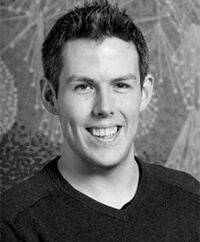Motivation -
Why urban IoT? Why now?
The move toward urbanization serves as a great opportunity. Cities are places where people, meet, exchange, work, live and interact. They bring people with different interests, experiences and knowledge close together. They are the centres of culture, economic development and social change. On average, larger cities produce more wealth and innovation per capita than smaller ones. Those living in cities tend to produce substantially less CO2 per capita as compared to those living in rural or suburban areas. Cities offer unique options for efficient sharing of limited resources.
In a sense, cities can serve as an efficient means of living – culturally, interactively, and ecologically. However, as with most complex systems, understanding the city system is essential to facilitating their operation in a cost-effective way; making these capacity boundaries elastic. The rhetoric of the “Smart City” has increased awareness of the potential for connected devices to support urban systems, but as the Internet of Things hits the peak of the Gartner hype cycle we need to expand our thinking around how the use of these technologies will be sustained.
Intel Labs are investing in the London Living Labs to deliver use case inspired basic research activity. Our mission is to demonstrate the compute fabric needed to support the design of an urban Internet of Things at city scale. Our research agenda is focused on creating an intelligent and secure network of things. In particular we are exploring how networks should evolve to sustain connected devices and the technologies required to process information in the network. We will be deploying a series of sensor networks using low cost, low power wide area communications to test and demonstrate their operation in the field.
The focus of our living lab will be the Queen Elizabeth Olympic Park where we will work with stakeholders to identify use cases that allow us to test the technical challenges of delivering IoT whilst also resolving the socio economic issues of sustaining a long term installation. Intel Researchers working on the capstone project are Dr Sarah Gallacher, Dr Mo Haghighi, Simona Ciocoiu in London and members of the IoT Systems Research Lab in Ireland. The Intel PI is Dr Duncan Wilson.
A focus from UCL’s perspective is designing and evaluating IoT technology for participation and reflection with citizens. We are using a combination of data sensing, social media, novel physical computing and in-situ visualisations, that will provide a variety of stakeholders with ways of collecting, and reflecting about citizens’ experiences in the urban environment. A series of prototypes are being developed that will be deployed in the Queen Elizabeth Olympic Park in London, intended to be used by a diversity of users (e.g., local residents, visitors) to share their experiences. The new projects build upon our pioneering work in prototyping physical computing systems
and in-situ visualisations for citizensensing (UCLIC) and work on social network analysis and IoT data integration (CASA). The wider goal is to develop IoT technology that can be used by city councils and local municipalities worldwide who need to understand more how their citizens respond to big changes caused by urbanization, immigration, gentrification, and the like. UCL researchers working on the capstone project are Dr Steven Houben, Dr Ben Bengler, Dr Can Lea (UCLIC) and Boyana Buyuklieva (CASA). PIs are Prof Yvonne Rogers, Prof. Licia Capra (UCLIC Computer Science) and Prof Andy Hudson-mdith (CASA).
The Adaptive Embedded Systems Engineering group (AESE), is a world leader in the development of self-organising MAC and Routing Protocols, Self-Adaptive Management schemes for low-power resource-constrained devices, including Wireless Sensor Networks. Our research has been motivated by applications that span asset monitoring, to environmental monitoring, to the arts. AESE focuses on the core technologies that will support the widespread adoption of connected devices in the small dense space of the city. In particular we research the tools that will permit the programming of heterogeneous devices at city scales
(to help ensure interactions and behaviours are as expected) and the support for maintaining networks of devices over time. We will be designing and deploying Energy Neutral Operation sensor networks, creating tools to support multi-tenancy design and management of IoT gateways and nodes, and experimenting with protocols for adaptively managing access to different communication networks in the park. Imperial researchers working on the capstone project are Dr Pedro Martins, Greg Jackson, Dr Marija Milojevic and Dr Zhijin Qin. The Imperial PI is Prof Julie McCann.
The Innovate UK supported catapults are technology and innovation centres where the best of UK businesses, scientists and engineers can work together on research and development. The Future Cities Catapult aims to accelerate urban ideas to market, to grow the economy and make cities better. From our Urban Innovation Centre in London, we provide world-class facilities and expertise to support the development of new products and services, as well as opportunities to collaborate with others, test ideas and develop business models. Our work currently focuses on three core themes: promoting healthy cities,
building resilience in urban infrastructure, and designing strategies to help cities adopt and finance smarter technologies. In the Capstone project we will be focusing on connecting IoT SME’s to challenges posed by stakeholders in the park and using a “performance in use” framework to test economic models for capital expense justification and ROI models. Future Cities Catapult researchers working on the capstone project are Lavinia Cox, Geoffrey Stevens, with support from the Insights, Futures, Making and Economics teams. The Future Cities Catapult PI is John Lynch.





































